Workshop Leaders

Andrew Chaikin
Astronomy
Space historian Andrew Chaikin is best known as the author of A Man on the Moon: The Voyages of the Apollo Astronauts, which tells the stories of the Apollo missions through the eyes of the astronauts. The book was the main basis for Tom Hanks’ 12-part Emmy-winning miniseries for HBO, “From the Earth to the Moon.” A graduate in geology from Brown University, Chaikin has brought his knowledge of planetary science to his writing and teaching. He is also a founding member of the International Association of Astronomical Artists. Website: www.andrewchaikin.com
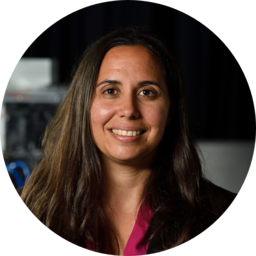
Rebecca Schulman
Biomolecular Engineering
Johns Hopkins University
Rebecca Schulman is an associate professor in the Departments of Chemical and Biomolecular Engineering, Chemistry and Computer Science and a member of the Institute for Nanobiotechnology, the Center for Cell Dynamics and the Laboratory for Computational Sensing and Robotics at The Johns Hopkins University. She develops intelligent and adaptive biomolecular materials and nanostructures by combining ideas from materials science, circuit design and cell-free synthetic biology. Her work uses techniques from biophysics, biomolecular design, systems design and machine learning. Dr. Schulman joined JHU after working as a Miller Postdoctoral Fellowship in physics at UC Berkeley. She received undergraduate degrees in mathematics and computer science from MIT and a Ph.D. from the California Institute of Technology. Recent awards include a Hartwell Individual Biomolecular Research Award, a President’s Early Career Award in Science and Engineering (PECASE), a DARPA Young Faculty Award and Directors Fellowship, an NSF Career Award, a Turing Scholar Award and a DOE Early Career Award.

Sarah Preheim
Environmental Science
Johns Hopkins University
The Preheim Lab seeks to understand the microbial processes impacting water quality to
aid remediation efforts and protect the environment and public health. She has expertise in microbial ecology
and bioinformatics and uses computational techniques to develop a mechanistic understanding of microbial
community structure and function.
Dr. Preheim received her PhD from a Joint Program with Woods Hole Oceanographic Institution and Massachusetts
Institute of Technology (MIT) in Biological Oceanography and did a postdoc in the Biological Engineering
Department at MIT. She has been an assistant professor in the Environmental Health and Engineering Department
at Johns Hopkins University since 2015
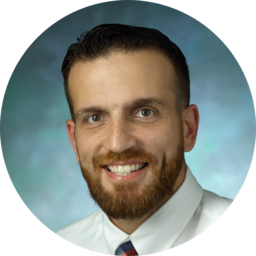
Dr. Bara Zuhaili
Vascular Surgery
Johns Hopkins University
Dr. Zuhaili is Assistant Professor at Johns Hopkins University and is dual board certified in both general and vascular surgery. He is also a Master of Public Health student at Johns Hopkins School of Public Health. Beside his daily role in teaching medical students, surgical residents and vascular fellows at Johns Hopkins, Dr. Zuhaili is an accomplished scholar, having contributed to dozens of national and international presentations and peer-reviewed manuscripts. Dr. Zuhaili has participated in multiple medical missions overseas and has witnessed first-hand the daily struggle of refugees around the world. He has strong interest in global health in general and improving quality of care in low and middle income countries.
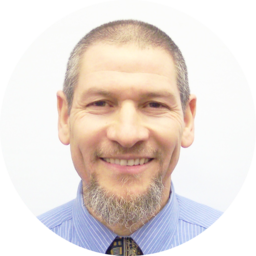
Dr. Amor Khachemoune
Dermatology
Baltimore Veterans Affairs Medical Center
Dr. Amor Khachemoune is a Board-Certified Dermatologist, Dermatopathologist and Mohs
micrographic surgeon. He is a Fellow of the American Academy of Dermatology, the American College of Mohs
Micrographic Surgery, the American Society of Dermatologic Surgery and the American Society of Lasers in
Medicine & Surgery.
Dr. Khachemoune attended Medical school at the National Institute of Medical Sciences and had subsequent
general and cosmetic dermatology training in France.
In the U.S.A, Dr. Khachemoune did his dermatology residency training at Georgetown University, where he also
served as Chief Resident in his last year. His subspecialty fellowship training included wound healing at
Boston University, Photomedicine and laser surgery at Harvard, Dermatopathology and Mohs micrographic surgery
at the State University of New York.
Dr. Khachemoune has published 20 book chapters and over 300 articles in peer reviewed medical journals. He is
on the editorial board of 14 medical journals.
Dr. Khachemoune is currently the chief of Mohs micrographic surgery director at the Baltimore Veterans Affairs
Medical Center. He is also on the dermatology teaching faculty at the University of Maryland, the State
University of New York, and the West Virginia University.

Dr. Amber Mehmood
Emergency and Trauma Care
Johns Hopkins University
Dr. Amber Mehmood is a trained surgeon and public health academic with an interest in emergency and trauma care. She received her clinical training in Karachi, Pakistan, and practiced for seven years before transitioning to full time public health career at the Johns Hopkins Bloomberg School of Public Health. Her interests are in digital health, systems thinking and using health system frameworks for improving injury outcomes. So far the scope of her work includes use of digital technologies to improve injury and trauma data systems; data to improve policies to deliver safe medical services, injury prevention and control in vulnerable populations including migrant workers, measuring trauma outcomes in low-middle income countries and mixed methods techniques to perform health systems assessment. Currently, Dr. Mehmood is the Associate Director at the Johns Hopkins International Injury Research Unit, and most of her work is based in East Africa, Middle East and South East Asia.
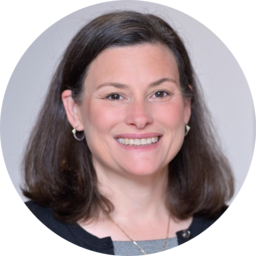
Dr. Alison Cernich
Human Development
National Institutes of Health
Dr. Alison Cernich is the Deputy Director of the Eunice Kennedy Shriver National Institute of Child Health and Human Development (NICHD) at the National Institutes of Health. As Deputy Director, Dr. Cernich assists the Director in overseeing the Institute’s programs supporting research on child development, developmental biology, nutrition, AIDS/HIV, intellectual and developmental disabilities, population health, reproductive biology, contraception, pregnancy, and medical rehabilitation. Prior to this position, Dr. Cernich was the Director of the National Center for Medical Rehabilitation Research (NCMRR) at NICHD. In her history of public service, she worked with the Department of Veterans Affairs and Department of Defense on issues related to traumatic brain injury and psychological health and was a liaison between the two Departments to inform the prevention, care, and long-term follow-up services needed by service members and veterans with these diagnoses.

Bryanna Yeh
Robotics Engineering
Johns Hopkins University
Bryanna Yeh is a robotics engineer in the Research & Exploratory Development Department at the Johns Hopkins University Applied Physics Laboratory. She works on software development and integration for various platforms including multirotors, fixed-wing UAVs, manipulators, and ground robots. Bryanna has a BS in Computer Engineering from Northwestern University and is working toward a MS in Mechanical Engineering from Johns Hopkins University.
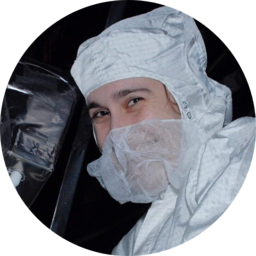
Ms. Caitlin Bacha
Propulsion Engineering
Goddard Space Flight Center
Caitlin Eubank Bacha is currently serving as the Project Manager for the Europa Clipper Propulsion Subsystem at NASA Goddard Space Flight Center (GSFC). She has been a Propulsion Engineer at GSFC developing in-space propulsion systems since 2006; serving as an integration and test lead for the Global Precipitation Measurement (GPM) mission and has worked a variety of spacecraft including the Magnetospheric MultiScale (MMS) mission, the Lunar Reconnaissance Orbiter (LRO) and the Solar Dynamics Observatory (SDO). Prior to Project Management, Caitlin was the Associate Branch Head for Propulsion. Caitlin’s experience has centered on chemical propulsion systems from concept development through implementation, launch, mission operations, and end-of-life disposal.

William Gasarch
Math
University of Maryland
William Gasarch (aka Bill) got his BS in Math and Applied Math (well rounded!)
from SUNY Stonybrook in 1980 and a PhD in Computer Science from Harvard in 1985.
He has worked in Computational Complexity, Computability Theory, Ramsey Theory,
Cryptography, and Muffins. He has been a professor at the Univ of MD since the
Fall of 1985. He has mentored over 100 high school students and undergraduates
on research projects. Bill has been co-blogging with Lance Fortnow on complexity theory at
Gasarch’s talk is titled Secret Sharing. Find the abstract below:
Zelda has a secret s! It is a string of bits, perhaps s=00110011010.
Zelda has 9 friends A1,...,A9.
Zelda wants the following to happen:
IF 4 or more of A1,...,A9 they can determine what s is.
IF 3 or less of A1,...,A9 get together they can determine NOTHING.
(They can't even determine the first bit of s, they can't even know that
the first bit is MORE LIKELY to be a 0, really NOTHING!)
Zelda will do this by giving each of A1,...,A9 a string or set of strings.
Can Zelda do this?
If so then how long will the strings be?
Come to the talk and find out!

Dr. Kevin Duh
Computer Science
Johns Hopkins University
Kevin Duh is a research scientist at the Johns Hopkins University Human Language
Technology Center of Excellence. He is also an assistant research professor in the Department of Computer
Science at Johns Hopkins. His research interests are at the intersection of Natural Language Processing and
Machine Learning. In particular, he is fascinated by the diversity of human languages in the world, and enjoys
designing algorithms that teach computers how to understand and translate language.
In my talk, I
will describe the exciting field of Natural Language Processing and Computational Linguistics. This is a
research area that may appeal to both STEM and humanities students alike. Human language is an innately
complex yet structured “object” that can be studied under the lens of computer science. Additionally, human
language is simultaneously both diverse (i.e. 6000+ languages in the world) and universal (i.e. there are
common properties that exist for all languages). I will give a quick tour of this interdisciplinary field and
focus on some example applications like Google Translate.
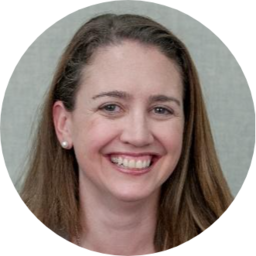
Dr. Kristen Zukosky
Education
National Institutes of Health
Dr. Kristen Zukosky is the Director of the High School Scientific Training and Enrichment Program (HiSTEP) and a Pre-medical advisor in the Office of Intramural Training and Education at the National Institutes of Health (NIH). She has a master’s in teaching from the University of Virginia and enjoys helping trainees get where they want to go professionally, scientifically, and develop as future leaders. Dr. Zukosky earned a PhD in Neuroscience from Brown University in the Brown/NIH Graduate Partnership Program. When not supporting trainees, she enjoys spending time with her two small children, running, and being outside.
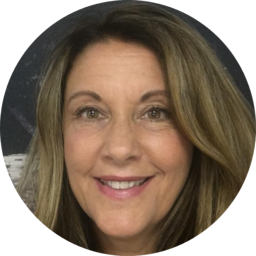
Denise Davis
Management
Goddard Space Flight Center
Denise Davis has supported NASA’s mission for 26 years. She currently manages student STEM Experiential Learning Opportunities and supports Office of STEM Engagement Next Gen STEM initiatives, nationally, across 10 NASA Centers. The goal of these programs is to forge powerful connections between students and NASA’s mission work, provide opportunities for students to contribute to NASA’s missions and work and to grow the next generation STEM workforce. She is based at Goddard Space Flight Center in Greenbelt, MD and resides in Howard County.
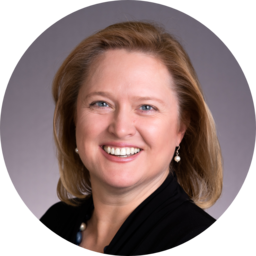
Dr. Susan Gromacki Lathrop
Optometry
First Sight Vision Care
Dr. Susan Gromacki Lathrop is one of the leading optometrists in the world. She is an internationally-recognized clinician, lecturer, consultant, and author. She graduated with honors from the University of Notre Dame and The Ohio State University College of Optometry and completed a residency in hospital-based optometry with the U.S. Department of Veterans Affairs. She has presented over 650 professional lectures and publications and has served as Contributing Editor of Contact Lens Spectrum, Review of Cornea and Contact Lenses, and CL Today. She served on the National Board of Examiners in Optometry, composing and overseeing the written examinations that ensure the qualifications of new optometrists to enter practice. She is one of only 11 doctors worldwide to earn Fellowship in the Scleral Lens Education Society and the prestigious Diplomate in Cornea, Contact Lenses and Refractive Technologies of the American Academy of Optometry. She has been interviewed by various television stations, newspapers, and radio stations and has presented to the US FDA and FTC, and in countries around the world. The Director of the Contact Lens Service at First Sight Vision Care in Fulton, MD, her awards include the World’s Top Optometrists (2020), Who’s Who in America, Who’s Who in the World, The Leading Health Care Professionals of the World, the 2018 Albert Nelson Marquis Lifetime Achievement Award, and one of the Most Notable Alumni in the 100-year history of The Ohio State University.
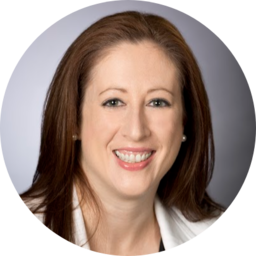
Kathleen Robertson
Environmental Science
Exelon
Kathleen Robertson has over 15 years of experience in federal energy and environmental policy strategy and implementation. In her current position, Kathy facilitates development of wholesale market and federal, regional, and state environmental rules to promote clean energy and support climate change goals, with specific attention to the role of nuclear and renewable resources. Kathy identifies projects of broad strategic importance for Exelon, with a focus on integrating state and regional environmental policy into the wholesale markets in a way that supports fair pricing of environmental attributes and competitive market outcomes. Kathy lead the public policy portion of Exelon’s recent organization-wide look at electrification potential. Kathy also provides policy support to Exelon’s Congressional and state regulatory affairs, corporate strategy, and legal teams. Kathy has also evaluated the environmental impacts of proposed energy projects, including power plants, transmission, and pipelines, for state regulatory agencies and served as a state environmental regulator.

Gary Davis
Aerospace Engineering
NASA
Gary Davis received his bachelor's degree in Aerospace Engineering from the University of Virginia and his master's from Princeton University. He has worked in the Propulsion Branch of NASA's GSFC from 1994, specializing in spacecraft propulsion design, analysis, integration & test, propellant loading, and on-orbit maneuver operations. Mr. Davis has been a member of several "in-house build" spacecraft teams, including the Tropical Rainfall Measuring Mission (TRMM), Microwave Anisotropy Probe (WMAP), Solar Dynamics Observatory (SDO) and has supported various other missions including the NESC for STS return-to-flight, and the Orion Service Module. Mr. Davis moved into systems engineering supporting the Magnetospheric Multiscale (MMS) mission, followed by OSIRIS-REx, LUCY, and is currently the MSE for PACE.

Sara Lacey
Civil Engineering
Pepco Holdings
Sara E. Lacey, P.E., holds a B.S. in Civil Engineering from the University of Maryland (2013) as well as a master’s degree in Engineering Management from Pennsylvania State University (2016). Mrs. Lacey is currently the manager of Underground Transmission Engineering at Pepco Holdings (PHI). During college, she interned with Pepco for two summer sessions; the 2011 summer session with the Pepco Civil Substation department and the 2012 summer session with the Pepco Joint Use department. Upon graduation in 2013, she started full-time in the Underground Transmission Engineering department at PHI and has served in several roles in PHI's transmission organization working on various initiatives from standards development to implementation of large underground transmission infrastructure projects. She has also previously held a role on PHI's regulatory compliance team as an engineering liaison to assist in the technical aspects of regulatory matters across various jurisdictions in the mid-Atlantic region. She currently serves as Chair of the North American Transmission Forum's Underground Transmission peer group. She is a member of ASCE as well as SWE and is a registered professional engineer in the state of Maryland.
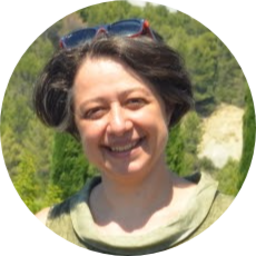
Dr. Sarah Shomstein
Neuroscience
George Washington University
Sarah Shomstein is a cognitive neuroscientist, Chair of the Department of Psychological and Brain Sciences, and director of the Cognition Attention and Perception Lab at the George Washington University. Her research focuses on elucidating neural mechanisms of brain functioning relating to visual processing and attentional selection. Research in her laboratory employs various methods ranging from human psychophysics and neuroimaging techniques to working with brain damaged populations. Student research projects in her lab address questions such as: How does the human brain select what to attend to given overstimulation? What information captures our attention? Why do smaller objects necessitate more attention? What are the neural mechanisms of attentional selection? Dr. Shomstein is committed to engaging students in STEM fields, which she accomplishes through events coordinated by the USA Science and Engineering Festival. She teaches advanced level Cognitive Neuroscience courses at undergraduate and graduate levels that explore the intricate relationship between brain and behavior and expose students to cutting edge methodologies and hot off the press scientific discoveries. Research in her own laboratory has been supported by grants from the National Science Foundation (NSF) as well as the National Institutes of Health (NIH). Dr. Shomstein has been on the faculty of the Department of Psychology since joining GWU in 2007. She is also a faculty in the George Washington Institute for Neuroscience and the GWU’s Mind and Brain Institute. She received a B.S. in Psychology from Carnegie Mellon University in 1998 and a Ph.D. in Psychological and Brain Sciences from The Johns Hopkins University in 2003.

Dr. Nirmala Kannankutty

Amrita Pulidundi
